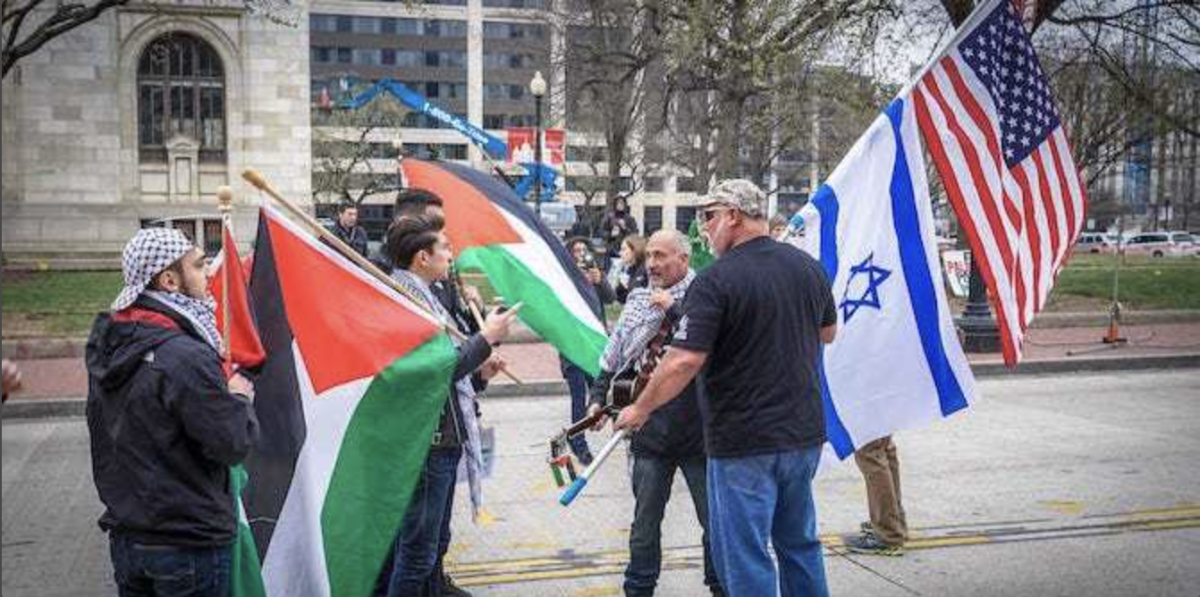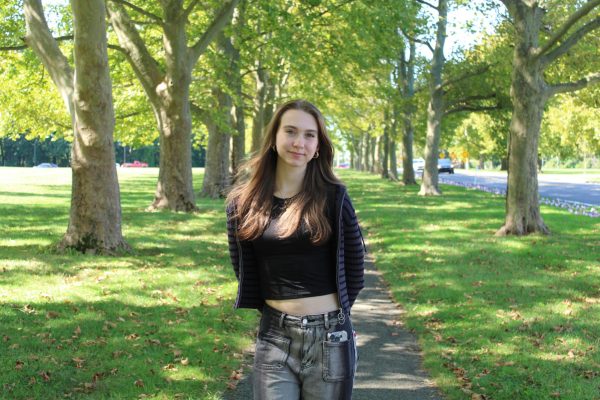October 8th, Israel declared war against Hamas – a Palestinian Sunni Islamist political and military regime that governs the Gaza strip – after Hamas forces bombed Southern Israel the day prior. Days later, on October 13th, in Lebanon County, Pennsylvania, a synagogue received a bomb threat, forcing members to evacuate the premises. The following week, on October 20th, in Philadelphia, vandals plastered hateful words across the front entrance of a Mosque.
Today, our community continues to face the dangers of Islamophobic and anti-Semitic hate crimes amidst the conflicts between the Israel-Hamas war, so the question is: how can we make our community a safe place for Muslim and Jewish families alike?
First of all, it is vital to understand the backstory to comprehend why this war started in the first place. Israel and Palestine have an extensive religious background, with both sitting on the holy land of Jerusalem. Abrahamic holy texts state that the Jews—who believed God had promised them land—and the Arabs—who didn’t have a cohesive state—both wanted their own land. However, the Jews were forced to scatter after being kicked out by the Roman Empire, who ruled the area at the time. This created the ideology of Zionism: the establishment of a Jewish territory within land then claimed by Palestine. Zionist groups would buy off pieces of Palestinian land for this very reason, eventually allowing Jews to migrate back to the area.
During WWI, Britain took over the Middle East, and Israel and Palestine were still trying to establish solid territories for themselves. In 1916, Palestine was promised an independent Arab state by British government officials in a letter dubbed the McMahon-Hussein Correspondence, which was overridden by the Sykes-Picot agreement, written by French and British powers. The latter divided Middle Eastern countries, including Palestine, into French- and British-administered territories. Israel claimed their independence as a country in 1948.
The day after their announcement of independence, an alliance of Arab states—including Palestine—attacked Israel, leading Israel to take over an even larger portion of Palestine. Although Palestine was offered a state of their own by the United Nations (U.N.), they would continue to reject it, believing the offer to be unfair; Zionists wanted a large portion of Palestinian land for a small number of Jewish migrants, and the antipathy continued. These battles and civil wars gradually stripped Palestine of more and more land. Today, Palestine is divided into two territories, the West Bank and the Gaza strip, altogether about the size of Delaware. This dispute over Israeli and Palestinian land is the reason why the conflict continues to worsen.
Southern Lehigh students have felt the effects of racial tension brought on by these hostilities.
Junior Madelyn Loghmani said that while she is very proud of her Middle Eastern identity, she has felt that she must hide parts of herself due to ethnic stigmatization.
“Being Middle Eastern is a huge part of my identity, but I don’t exactly feel too great about other people knowing that I was born in Iran,” Loghmani says. “There is a big reason why I always say I’m Persian instead of Iranian. I know that if I say that I am Iranian, there is already such a bias and judgement that comes along with that title. I changed a lot about myself to feel more welcome and not face the automatic thoughts and beliefs that appear when hearing my name or seeing my face.”
Sophomore Sacha San Clemente, who is Jewish, has experienced similar stereotyping.
“Personally I have at least one comment made about my Judaism daily. It’s often more than that,” San Clemente says. “The majority of the time the comments are just jokes not meant to cause any harm, but on a few occasions I can tell someone was phrasing it as a joke while meaning whatever they said.”
Within the Lehigh Valley, Jewish and Muslim habitants make up around 1.5% of the population. Although it may not seem like a lot, 1.5% is around 13,000 people. That is 13,000 people in our community that are being directly affected by the Israel-Gaza war, and 13,000 people who are currently at a higher risk of harassment or hate-crimes. As of now, the Pennsylvania educational curriculum for grades K-12 is lacking in instruction regarding the Middle East, which can increase the risk factor even more within school settings.
“I think that proper education on the Middle East is very important. We often focus upon Europe, Egypt, and East Asian countries when we learn about world history, heavy emphasis on Europe,” says Loghmani. “I think that with proper education regarding the entirety of the Middle East, not just the Arab and Islamic portion of it, would build a much more representative image of that section of the world and its people. I also feel as though students would be better informed and less biased against this community.”
San Clemente hopes that people can “spread more kindness” in the community.
“Most of the time we are taught to do kind things, but we are not taught to be truly kind and understanding in our core. If people were truly taught kindness we would see less racism and violence to minorities and a general improvement to our world,” San Clemente says. “I think that to make Jewish or Muslim students feel safe and welcome in our district we need to have more education on these religions. We learn far too little about each other’s cultures and people to understand and appreciate it wholly. This can also be taken to a worldwide scale in needing to educate people about all religions, so people can see that it’s not that different from what they are familiar with.”
Fortunately, within our district, there are resources for students such as the No Place For Hate club, and the American School Counselor Association (ASCA), which aim to help any child in need. Guidance counselor Mrs. Kristen Stepanczuk reminds students to reach out to staff members, be mindful of what media they’re consuming, and practice general self-care anytime they feel pressured by the world at large.
“If at any time students feel like they’re struggling, we want them to loop in the adults in their life. We never want anyone to feel like they need to shoulder anything by themselves, and as a school community we are all here to help and support each other,” Mrs. Stepanczuk says. “We are very fortunate to have such great counselors, and, in addition, we partner with the Caron Foundation and St. Luke’s-based school counseling, so I think what is great is that there is already a lot of supports we have put in place for students.”



